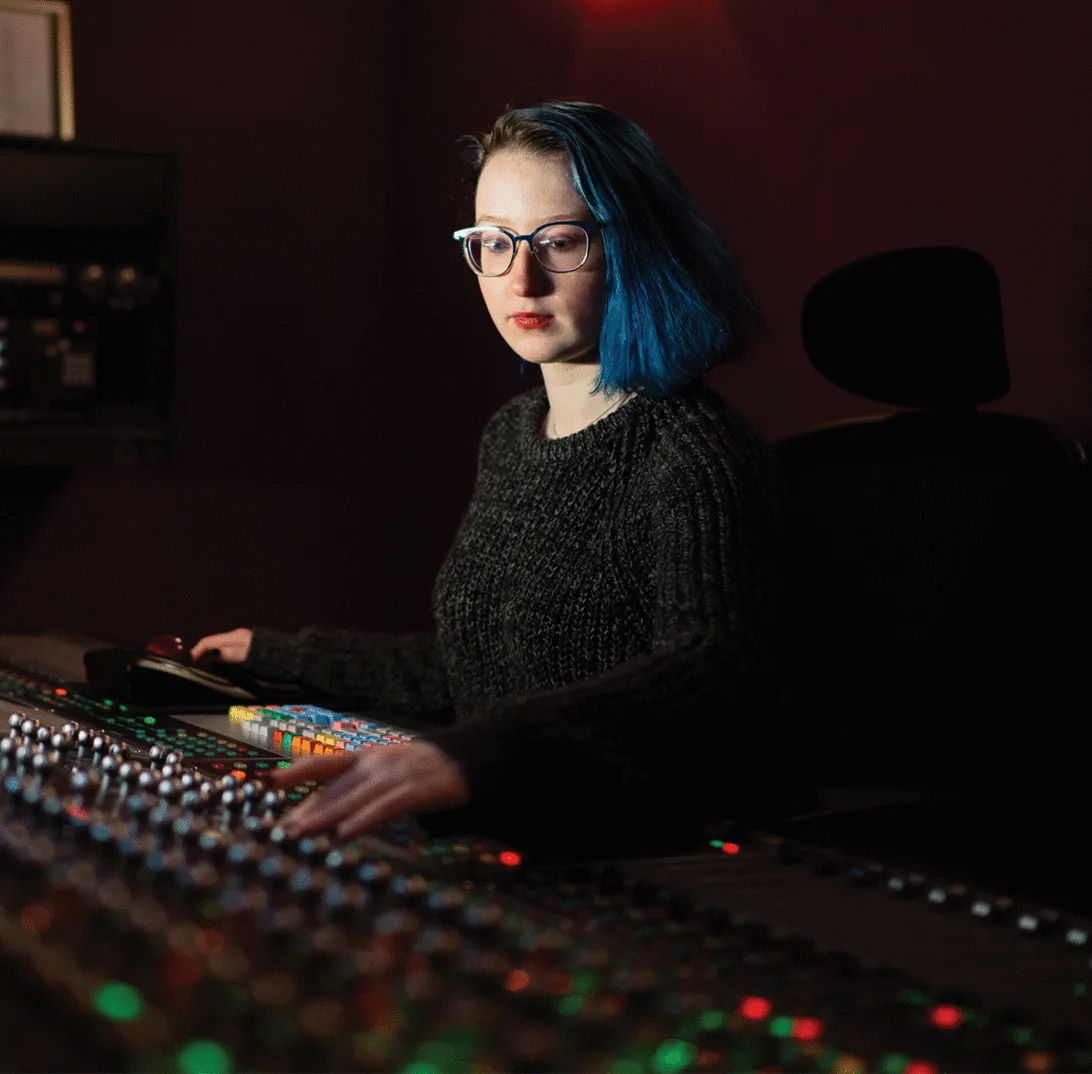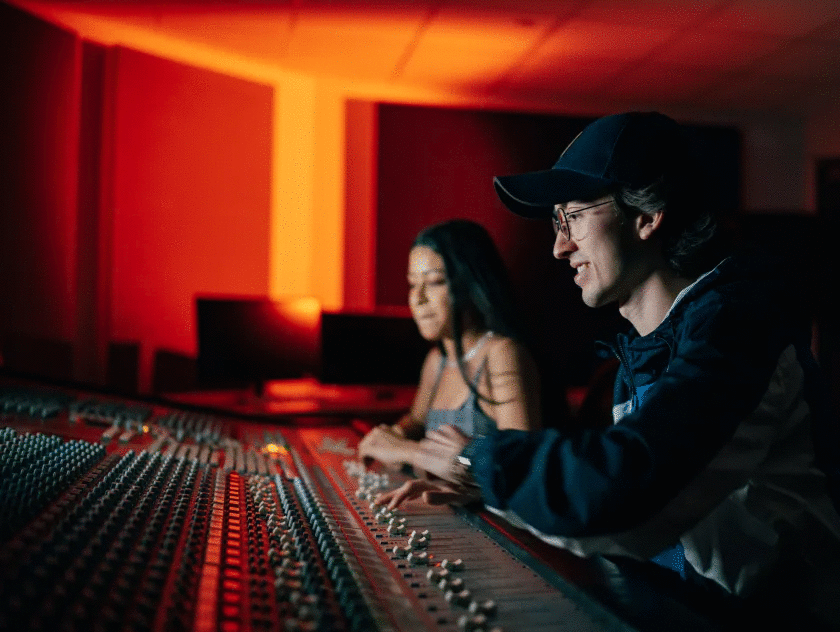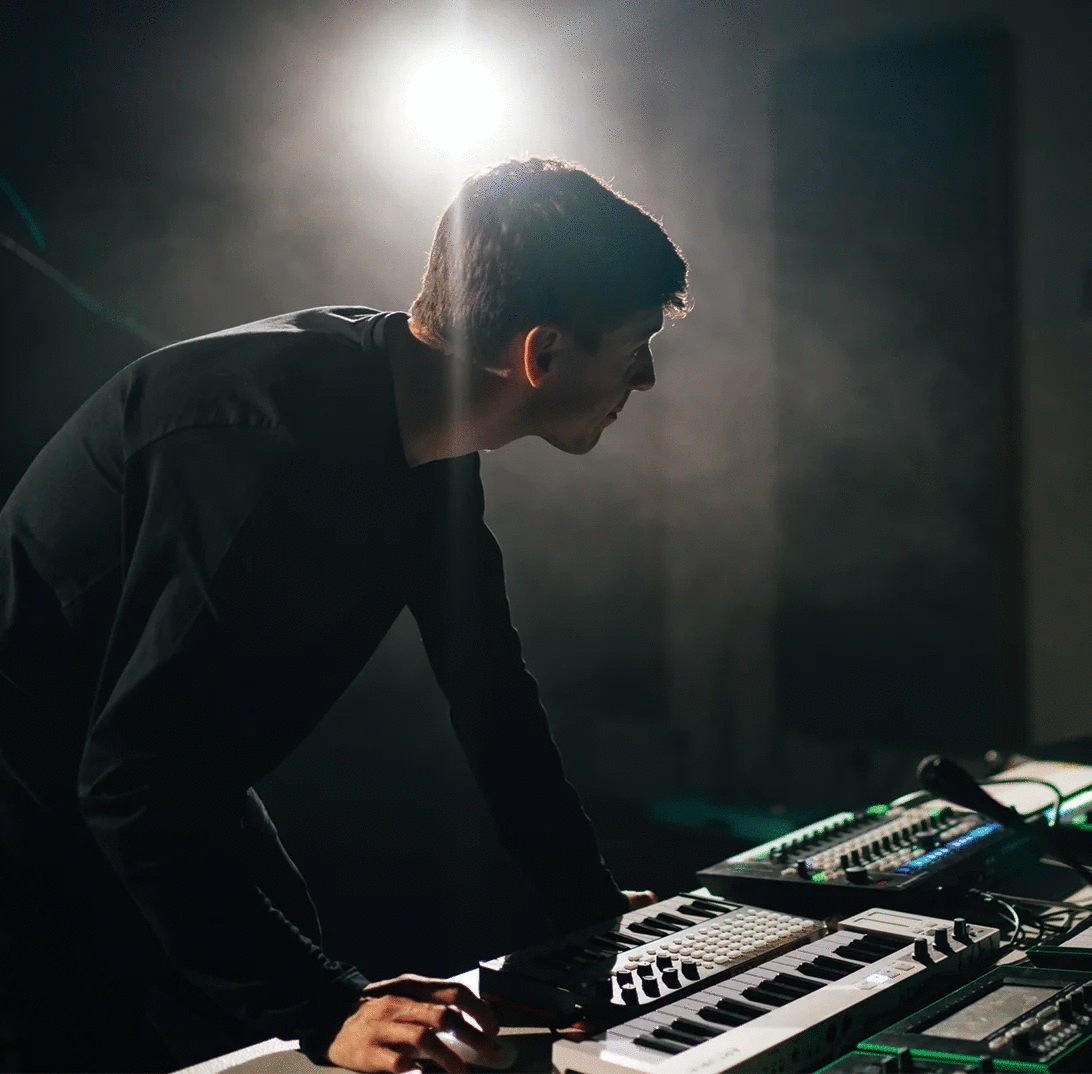BA/BSc (Hons) Audio Production
Get equipped to launch your career in the audio industry.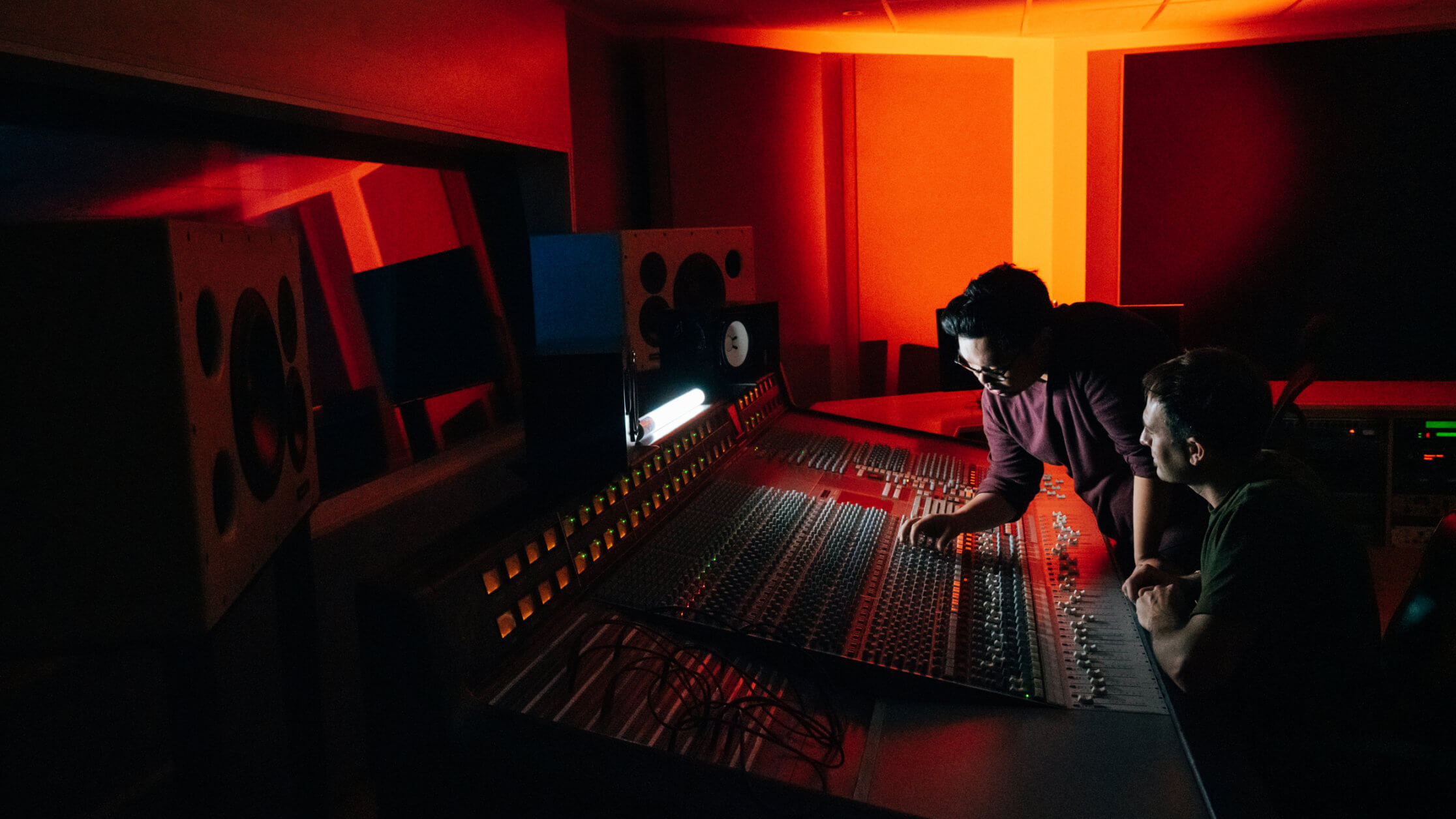
March and September 2025
For non-EU students, a valid VISA for the entire duration of the selected course is required prior to enrolment. The registration at SAE Institute cannot grant you a Student Visa in the Netherlands.
Students studying higher education courses may be eligible for various forms of funding, including student loans and grants. There may be some differences depending on the region you come from.
YOUR CAREER IN AUDIO BEGINS NOW
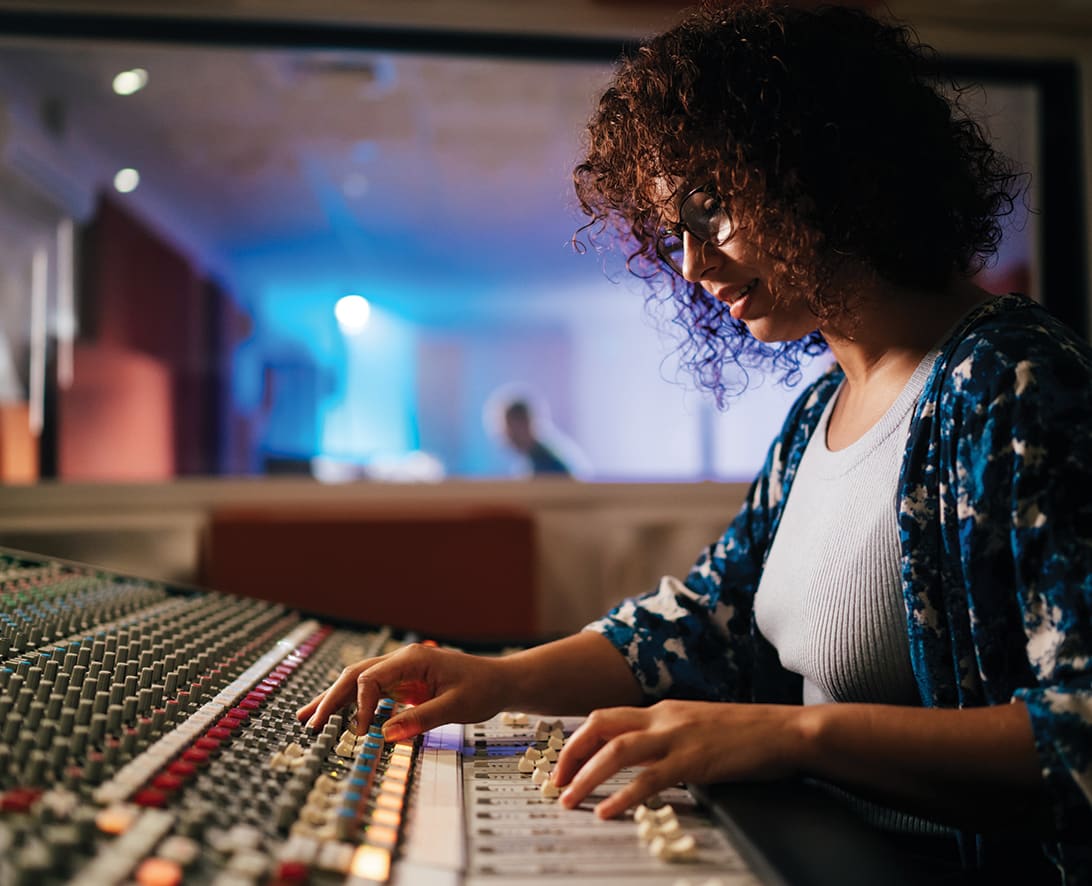
Tools & Software



Audio Production course covers:
Course Structure
The Bachelor of Audio is broken up into three distinct stages, each designed to develop different skills.In the beginning, a vision/idea of a fictitious media product in the creative industry is developed as a team. The group members should then divide themselves into the corresponding roles within the researched positions and define which software they need for this and what salary they would receive for it. What is the cost of the position you hold in the company, together with the resources you need for it? Which group members are permanent employees and which are freelancers?
In the course of the module, the team develops branding for the product, considers possible distribution channels for the release, and prepares the individual pieces of work of the group members from a marketing point of view so that content can be used for a possible advertising campaign.
By the end of the module, you will have an overview of all job positions within your industry, be able to assess your work financially and market yourself and your portfolio appropriately. You will get an overview of the workflow, how freelance and permanent activities work in the industry, and know how to use basic marketing techniques.
Recording in different studios and outdoors, mixing in hardware and software, and the integration of outboard equipment in DAWs are further topics of this module. This often involves music, but also other areas such as original sound and foley recording.
In the module, students will experience teamwork across creative media disciplines, and potentially remotely across various campus locations. The module will also introduce key differences between production strategies for the arts or sciences, preparing students to develop their specialization.
Students can choose from a range of possible projects, the availability of which is determined by the location of the campus, the needs of the local industry, and/or the student’s learning requirements.
Throughout this module, students will be encouraged to engage in self-reflective processes to improve their creative and collaborative work practices and to build the core skills necessary for a successful career in the creative industries. With the guidance of studio facilitators, students will complete a set of project briefs designed to build on the foundation skills acquired and to further enhance their competencies within their discipline area.
During the module, you will create a deep and secure understanding of your area of interest. Common procedures, existing publications, technical workflows as well as reference and repertoire knowledge are elements that you research, present, and discuss. During the module, you will develop the proposal for your final thesis piece by piece.
Throughout the module, an initial idea for a media project turns into a well-founded plan that includes concrete objectives and a suitable approach. At the end of the module, you will have a clear idea of what your thesis looks like and how you plan to implement it.
The Major Project is for students to demonstrate their skills in a large-scale, advanced-level Bachelor project.
Student Spotlight
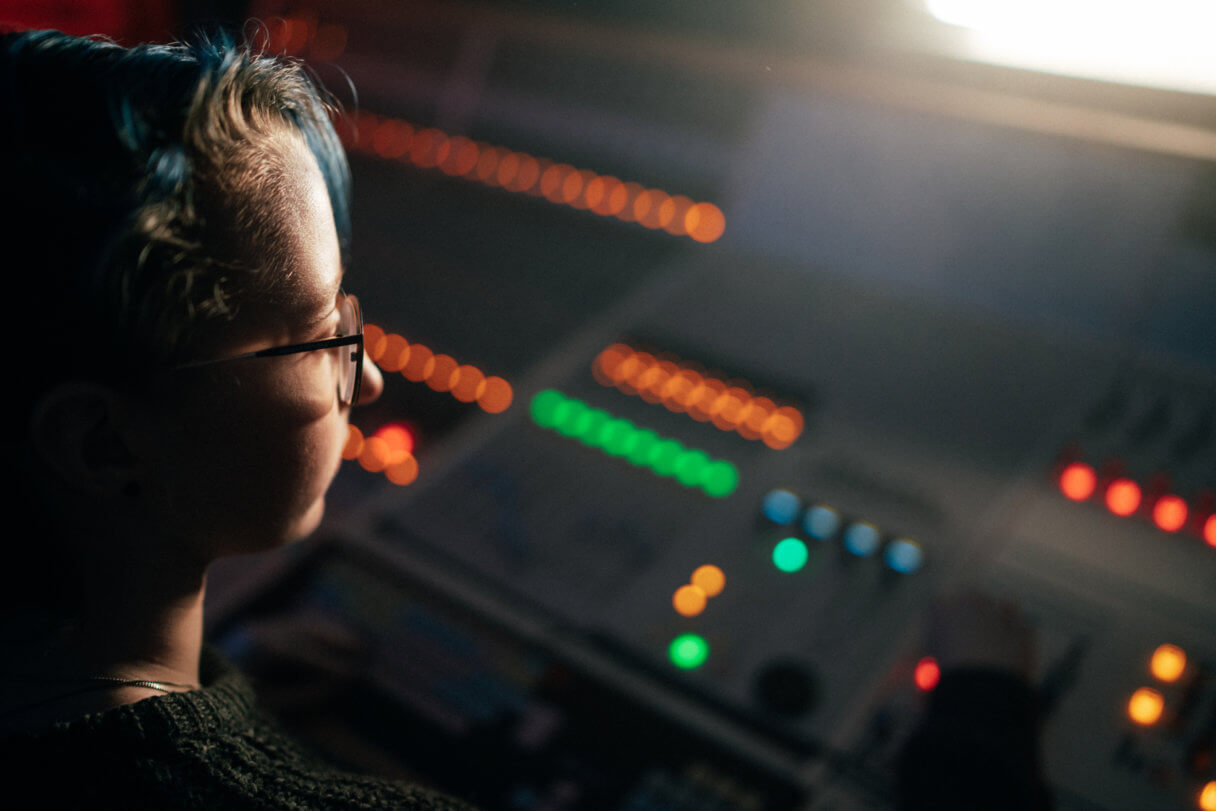
What jobs will this course lead me into?
Studio Engineer
Music Producer
Game Audio Specialist
Sound Editor
Staging Crew
Audio/Visual Technician
Sound Designer
Live Sound Engineer/Operator
Radio Broadcasting
Course FAQs
Yes, there is an SAE Student Store with discounts available to students who have fully enrolled.
No, this is not required. Students have access to our campus computer labs for assessment work.
Audio students get the chance to collaborate with other disciplines, there are many opportunities and requirements to collaborate with students from other degrees throughout the course.










